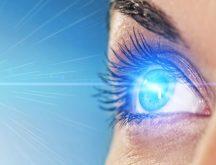[:en]While summer brings some of the most fun and exciting activities like beach trips, barbecues, sunny afternoons with your cousins and pub gatherings, it also brings something less pleasant, hay fever.
Hay fever also referred to as allergic rhinitis occurs when pollen is inhaled through the nose or if it gets into the eyes. However, this all depends on where you live and how often you are exposed to pollen on plants and grass. Hay fever primarily affects your nose and eyes. There are common symptoms associated with this condition which include itchy eyes and a blocked or runny nose.
If you take the UK for instance, currently 16 million people suffer from hay fever and due to its chaotic weather in recent years, they have been warned to brace themselves when weeds and grasses bearing pollen flourish in the summer, following a significant rainfall. Rainfall is known to increase pollen. And therefore, hay fever usually extends beyond summer months.
If you are a hay fever sufferer it is always good to take preventive measures, however, most sufferers wait until the condition is completely out of hand. Eternal optimists believe they will outgrow this condition. Hay fever has a way of creeping on you unaware although you may have had relief from it for several years.
When it comes to Lasik treatment, it is unlikely your doctor will treat your eyes before they treat the hay fever conditions. During Lasik eye surgery antibiotic eye drops and steroids are part of the daily routine. It is to reduce the risk of infection post surgery which means you are getting relief and protection for your eyes. Eye drops are also known to flush out allergens and reduce allergy stimulation.
Once you’ve had laser eye surgery you are likely to pay more attention to the state of your eyes. Although you may be prone to allergies, you will find that as a result of lubricating eye drops, the allergies are kept at bay. So you don’t have to be concerned about hay fever when it comes to having Lasik eye treatment.[:]
